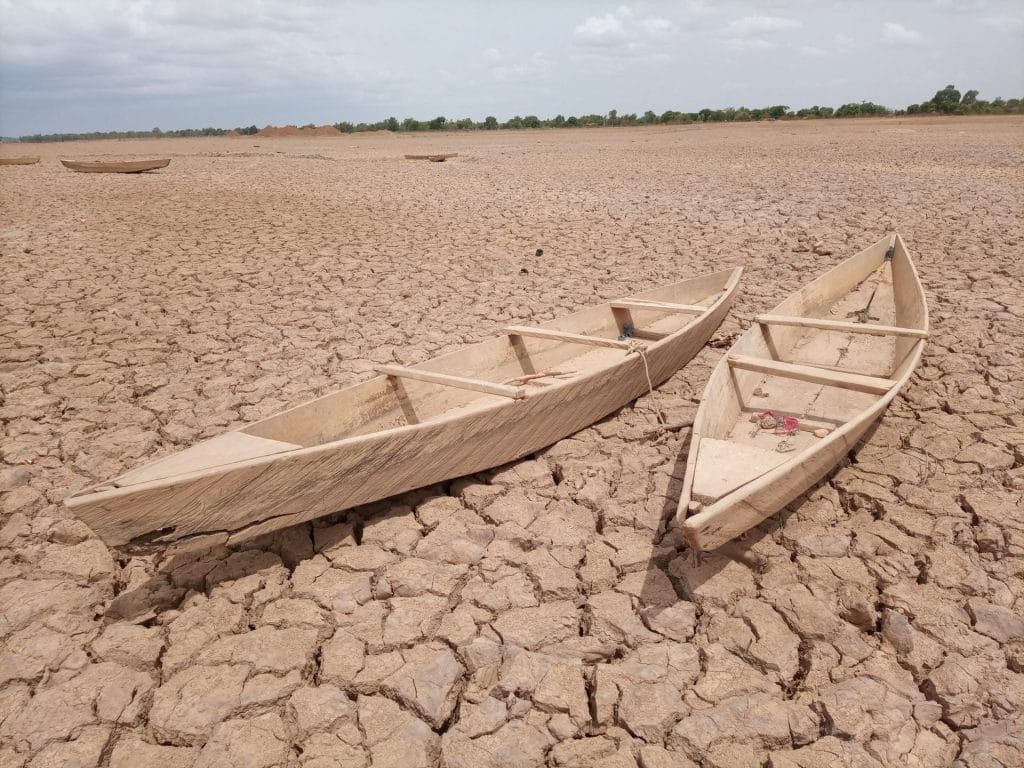Against backdrop of war, major climate report calls for adaptation and mitigation now
By Jessica McKenzie | March 2, 2022
 Half of the world’s population endures severe water scarcity for at least part of the year. (Photo by YODA Adaman/Unsplash)
Half of the world’s population endures severe water scarcity for at least part of the year. (Photo by YODA Adaman/Unsplash)
The world must invest much more in climate adaptation in addition to slashing greenhouse emissions if the worst effects of the escalating climate crisis are to be avoided, the 270 authors of the latest United Nations climate report warn. And it has to happen soon.
“The cumulative scientific evidence is unequivocal,” their report concludes. “Climate change is a threat to human well-being and planetary health. Any further delay in concerted anticipatory global action on adaptation and mitigation will miss a brief and rapidly closing window of opportunity to secure a liveable and sustainable future for all.”
This second installment of the Intergovernmental Panel on Climate Change (IPCC) 6th assessment was released Monday against a backdrop of war, just four days after Russia invaded Ukraine. Botanist Yakiv Didukh, who works for the National Academy of Sciences of Ukraine, completed final line checks of the report from a bomb shelter in Kyiv, Reuters reported. “I can hear explosions from my house,” Didukh told Reuters. “It is difficult for me now to think and talk about the climate, because the psychological situation is very tense. I am waiting and hoping that this will end and I will be able to do science.”
Oleg Anisimov, the head of the Russian delegation, even apologized for Russia’s aggression, saying, “those who know what is happening fail to find any justification for the attack.”
UN Secretary-General António Guterres alluded to the conflict in his remarks introducing the report. “As current events make all too clear, our continued reliance on fossil fuels makes the global economy and energy security vulnerable to geopolitical shocks and crises,” Guterres said. “Instead of slowing down the decarbonization of the global economy, now is the time to accelerate the energy transition to a renewable energy future. Fossil fuels are a dead end: for our planet, for humanity, and yes, for economies.”
Inger Anderson, the executive director of the UN Environment Programme, also alluded to the war in her remarks: “This report comes at a time of great turmoil when we need strong multilateralism to promote peace and healthy environment,” Anderson said.
The report, which was based on over 34,000 scientific papers, focused on impacts, adaptation, and vulnerabilities around the globe. It highlighted the fact that some of the damage already done to terrestrial, freshwater, and marine ecosystems due to climate change is irreversible, and that “across sectors and regions the most vulnerable people” are disproportionately affected. Moreover, the warmer the globe becomes, the harder it will be for people and ecosystems to adapt and survive.
“Starting today, every action, every choice, and every decision matters, because each of them can take us away from or towards a climate-resilient world,” said Debra Roberts, the co-chair of working group II, who helped present the report’s findings at a press conference. “Worldwide action to achieve climate resilience and sustainable development is more urgent than previously assessed.”
At 3,675 pages (the summary for policymakers is a trim 37 pages), such an expansive and exhaustive report is hard to summarize in a news article. These are merely some of the more alarming, surprising, or new findings.
Ecosystems in trouble. Climate change has already wreaked havoc around the globe to an extent greater than previously assessed, sometimes irreversibly so. This includes species loss in hundreds of locations due to higher temperatures, mass mortality events in the ocean and on land—including trees and kelp forests—and extinctions. Half of the species studied globally have shifted their ranges poleward or to higher elevations in response to climate change. At just 1.5 degrees Celsius of warming (the goal the world is trying to “keep alive”), three to 14 percent of terrestrial species will be at high risk of extinction, and many more will be at risk if warming is even greater.
Health and disease. Millions of people are facing acute food insecurity because of climate change-related extreme weather events, which has disproportionately impacted Indigenous peoples, low-income households, children, the elderly, and pregnant women. Half of the world’s population endures severe water scarcity for at least part of the year. Water- and food-borne diseases are becoming more common in a warmer world, and diseases that can jump from animals to humans are emerging in new areas. People are dying from extreme heat and suffering cardiovascular and respiratory distress due to increased wildfire smoke and atmospheric particles.
Climate injustice and colonialism. Not all people will experience climate change to the same degree. “In climate risk hotspots, deaths from floods, droughts, and storms were 15 times higher than those in more resilient countries over the last decade,” said the UN’s Anderson. “This is climate injustice.” Small island states and countries in Africa, Central and South America, South Asia, and the Arctic are at greater risk due to geography, local climate, or “high human vulnerability.” The report estimates between 3.3 and 3.6 billion people live somewhere highly vulnerable to climate change. Some of those risks have been exacerbated by current and historic colonialist practices, and the authors call for leaders to prioritize equity and justice when enacting climate adaptation.
The healing power of nature. The report suggests investing in ecosystem-based adaptation or nature-based solutions, including the conservation and restoration of forests and peatland and the building out natural infrastructure in cities to make them more resilient. “Establishing or restoring green and blue spaces, parks, green corridors, ponds, and wetlands, as well as urban agriculture can all be woven into the built environment,” said Hans-Otto Pörtner, co-chair of the working group II. The report also emphasized the importance of biodiversity, not only for its own sake, but for its role in supporting human health, agriculture, and livelihoods, among other benefits. “Ecosystem stewardship is key,” said Roberts. “A healthy planet is fundamental to climate-resilient development.”
Andersen went even further: “Nature can be our savior,” she said. “But only if we save it first.”
Maladaptation. The report also singles out the risks of maladaptation, or the (usually unintended) consequences arising from poorly thought-out climate adaptations. They might result in increased greenhouse gas emissions, increased vulnerability to climate change, and greater inequity. The authors single out the risks of planting forests in places that weren’t previously forested and “poorly implemented bioenergy” as examples of projects that can harm biodiversity, water and food security, and livelihoods. Seawalls and fire suppression are examples of climate adaptations that might have short-term benefits but cause long-term harm.
The war in Europe threatens to overshadow the many risks enumerated in this installment of the IPCC global assessment (127 risks, to be specific). But current events are not disconnected from the climate crisis. “The money that is funding this aggression comes from the same [place] as climate change does: fossil fuels,” the head of the Ukrainian delegation, meteorologist Svitlana Krakovska, told Time. The answer to the war in Ukraine and the climate crisis will have much in common as well: global cooperation—and weaning ourselves from fossil fuels.
Together, we make the world safer.
The Bulletin elevates expert voices above the noise. But as an independent nonprofit organization, our operations depend on the support of readers like you. Help us continue to deliver quality journalism that holds leaders accountable. Your support of our work at any level is important. In return, we promise our coverage will be understandable, influential, vigilant, solution-oriented, and fair-minded. Together we can make a difference.
Keywords: Russia-Ukraine, Ukraine, cities and climate change, climate crisis, climate justice, maladaptation, nature, sustainable development
Topics: Climate Change














